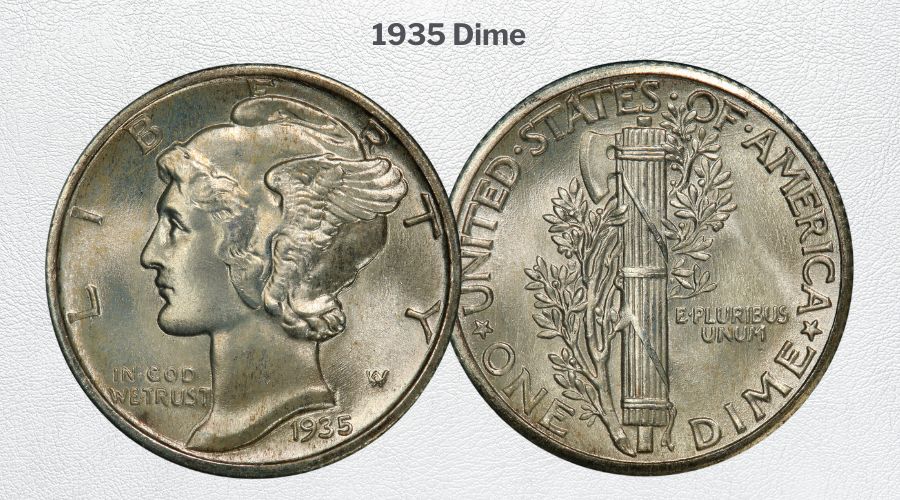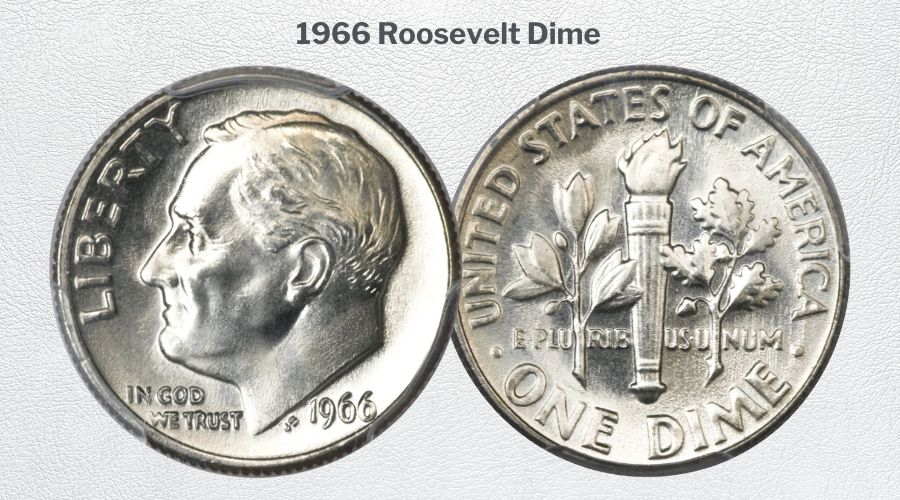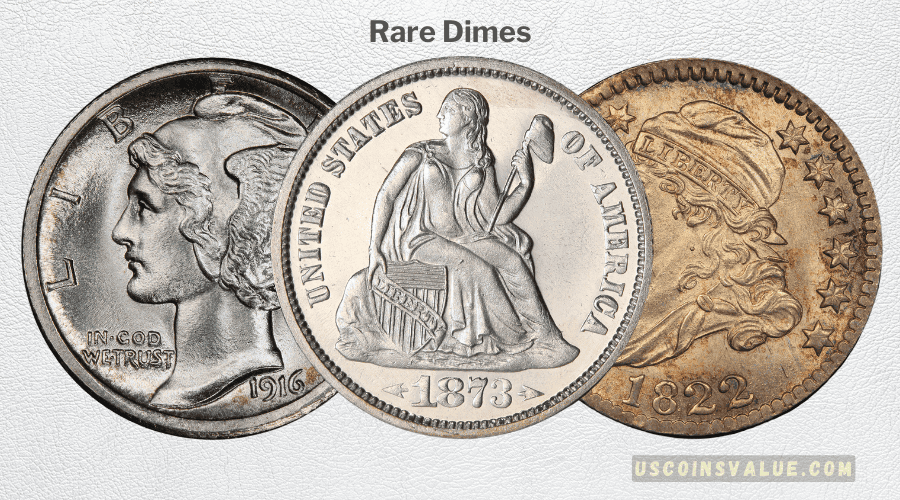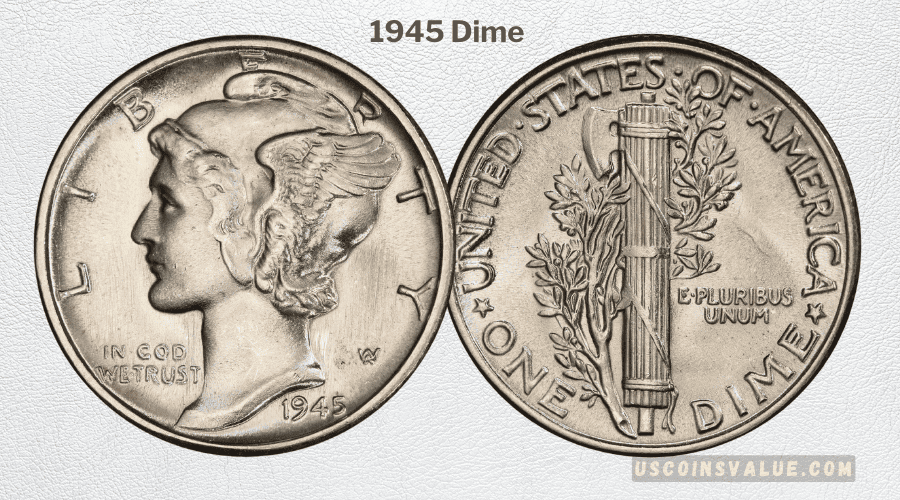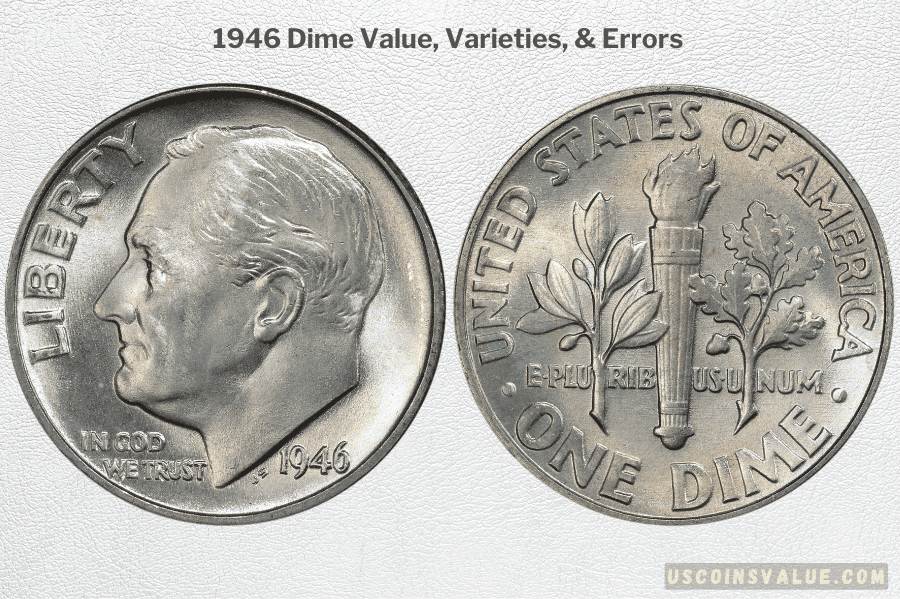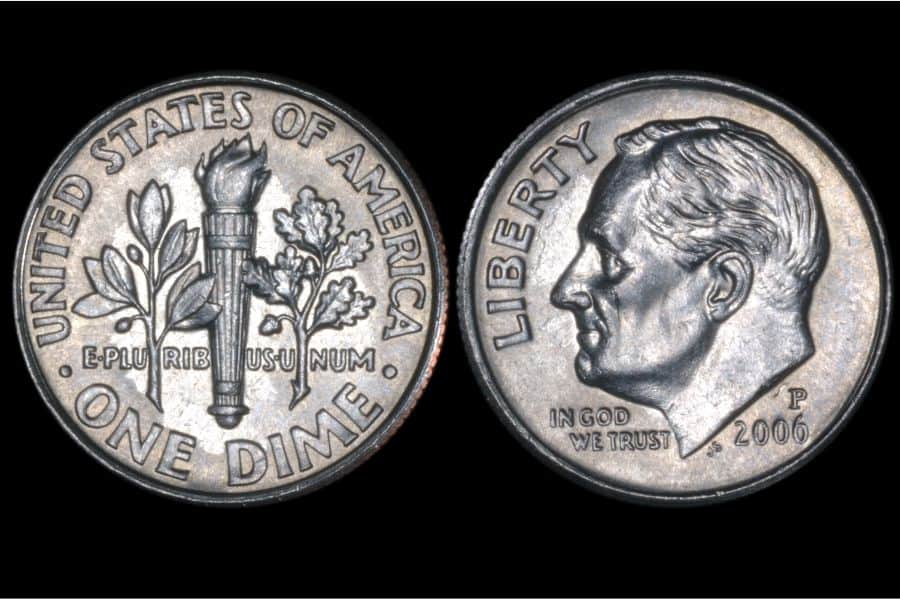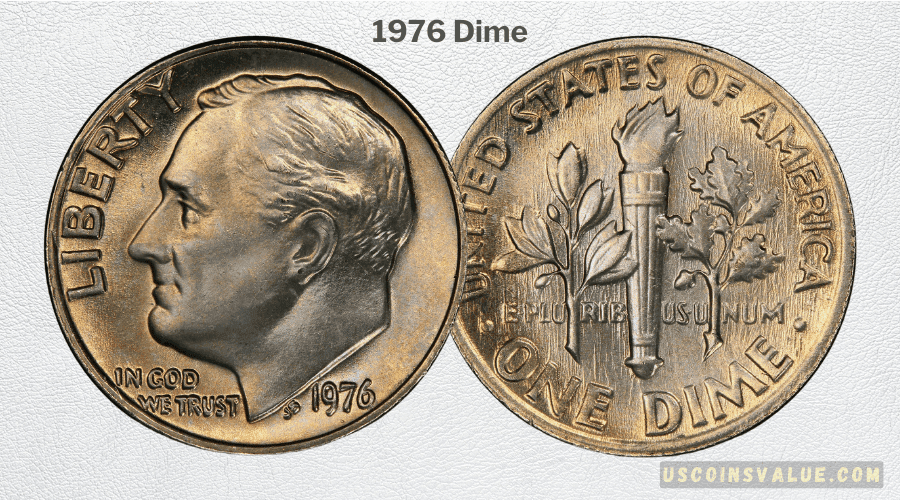The dime (the ten-cent or one dime) is the smallest United States coin, first minted in 1796 as authorized by the Coinage Act of 1792.
The dime coin currently weighs 2.268 grams, has a 17.91 mm diameter, features 118 reeds on the edge, is 1.35 mm thick, and comprises 91.67% copper & 8.33% nickel.
History
The U.S. dime coin has a rich history that spans over two centuries. The first dime was known as the Draped Bust dime, featuring the bust of Lady Liberty on the obverse and an eagle on the reverse.
Over the years, the dime has undergone several design changes, with each new design reflecting the cultural and political values of the country.
The most significant alteration to the dime occurred in 1946 with the introduction of the Roosevelt design, featuring a portrait of President Franklin D. Roosevelt on the obverse. This design has persisted unchanged to the present day.
The types of dimes throughout U.S. history include:
- Draped Bust (Small Eagle): 1796 – 1797
- Draped Bust (Heraldic Eagle): 1798 – 1807
- Caped Bust (Large Dentils): 1809 – 1828
- Caped Bust (Small Dentils): 1828 – 1837
- Liberty Seated (No Stars): 1837 – 1838
- Liberty Seated (No Drapery): 1838 – 1840
- Liberty Seated (Stars Obverse): 1840 – 1860
- Liberty Seated (Stars Obverse, Arrows at Date): 1853 – 1855
- Liberty Seated (Legend Obverse): 1860 – 1891
- Liberty Seated (Legend Obverse, Arrows at Date): 1873 – 1874
- Barber Dime: 1892 – 1916
- Mercury Dime: 1916 – 1945
- Roosevelt Dime: 1946 to Date
Composition
The composition of the dime has only been altered once throughout its history.
Early dimes were primarily silver, composed of 90% silver and 10% copper. The Coinage Act of 1965 marked a significant shift as dimes transitioned to a copper-nickel composition (91.67% copper and 8.33% nickel), eliminating the silver content. Current dimes still maintain this composition.
Value of Dimes Today
The value of U.S. dimes today primarily considers the rarity of each coin, the uniqueness of its appearance, and its condition. Their value extends beyond mere face value.
Early silver dimes fetch the highest prices due to their historical significance, precious metal content, and collector demand.
Other coins like the Mercury Dime have managed to maintain their demand purely from their artistic appeal and well-preserved condition.
Although widely circulated, Roosevelt Dimes can also hold significant value, especially in proof sets or if they exhibit mint errors or varieties.
The most valuable dime with the highest sale record is the 1873-CC Seated Liberty Dime: No Arrows coin valued at over $3,500,000. Other notable best sellers include the 1874-CC Seated Liberty Dime worth more than $290,000, the 1872-CC Seated Liberty Dime worth more than $260,000, and the 1871-CC Seated Liberty Dime worth $160,000 or more.
Please read our detailed blogs to dive deeper into the various types of dimes and their value in today’s market. We have included comprehensive guides and resources to inform collectors, investors, and enthusiasts alike about what makes a dime valuable.

